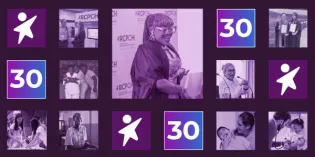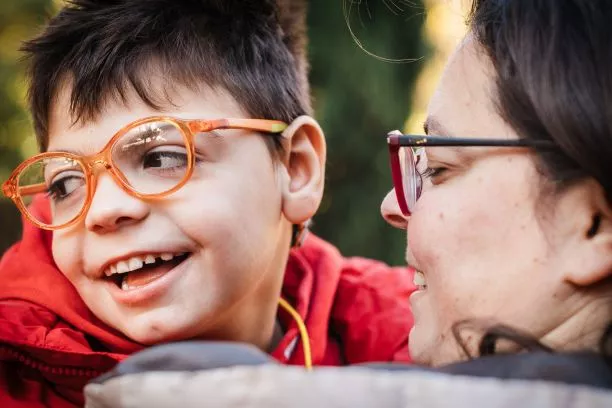
Introduction
Epilepsy is common condition affecting around one in every 200 children and young people in the UK. The Epilepsy12 national audit collects information about care for children and young people with seizures. We aim to help the NHS understand the strengths and ways to improve epilepsy services in England and Wales. Epilepsy12 is commissioned by the Healthcare Quality Improvement Partnership (HQIP) as part of the National Clinical Audit and Patient Outcomes Programme (NCAPOP).
We've previously produced patient and parent guides to summarise Epilepsy12 results published in our 2020 and 2021 combined annual reports. These guides include information about the care provided to patients (clinical audit) as well as the services available within each NHS Trust and Health Board area (organisational audit).
In 2022, we worked with the Epilepsy12 Youth Advocates to create a new young person and parent resource. The engaging leaflet style resource describes the key messages and information from the audit, links to useful resources and includes a checklist outlining some important components of yours or your child's epilepsy care.
You can download the leaflet, as well as previous guides, from the download section below.
Useful epilepsy resources for children, young people and families
About the Epilepsy12 Youth Advocates
The Epilepsy12 Youth Advocates is a group of epilepsy-experienced children, young people and families working with our Children and Young People Engagement Team (RCPCH&Us) and two epilepsy specialist nurses. Our Youth Advocates champion ways to improve care for children and young people with epilepsy.
Epilepsy12 works with RCPCH&Us to ensure children and young people can shape and influence the Epilepsy12 audit and epilepsy services.
Read more about RCPCH&Us and the Youth Advocates' award-winning project to support patient’s worries and anxieties: the Clinic Chat Check List.
Key messages
The results of the 2022 Epilepsy12 audit found that there were a lot of differences between epilepsy services. We have provided recommendations to paediatric clinical staff, healthcare professionals and senior management to suggest improvement areas or recognise their success. You can find out more below:
- Your epilepsy team
-
Multiple teams are working together to provide children and young people with the best care for their epilepsy:
- Epilepsy specialist nurses (ESN) play a key role in supporting you during and in between appointments, and can often be your first point of contact.
- Consultant paediatrician with expertise in epilepsy provide specialist advice and support.
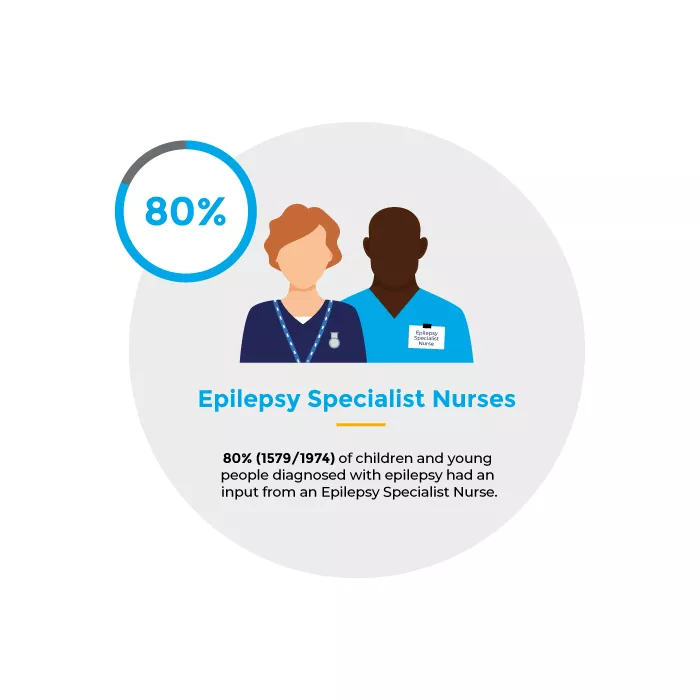
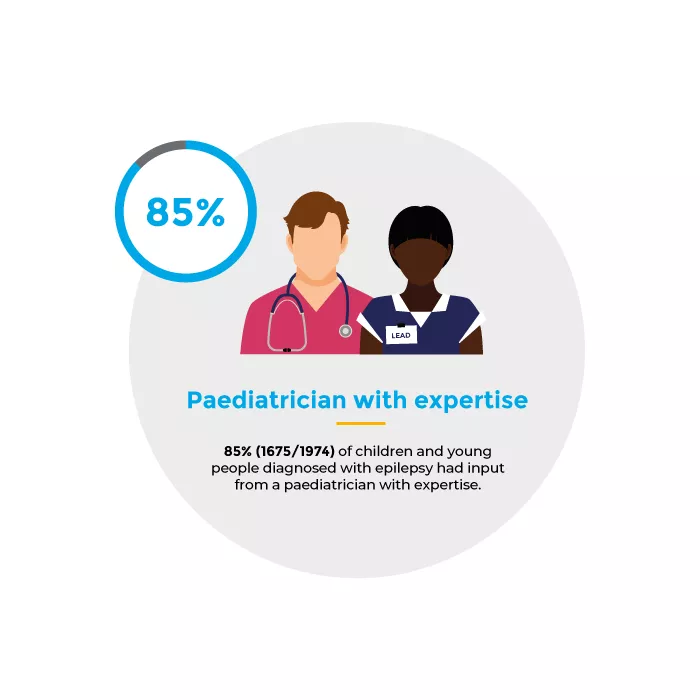
- Care planning
-
Most children and young people with epilepsy have complete, individual, and up-to-date care plans. The Epilepsy12 Youth Advocates created an Example school individual health care plan to help children, young people, families and school workers.

- Mental Health
-
Very few young people with epilepsy had an identified mental health condition and few epilepsy services had mental health services easily accessed from their epilepsy clinics.
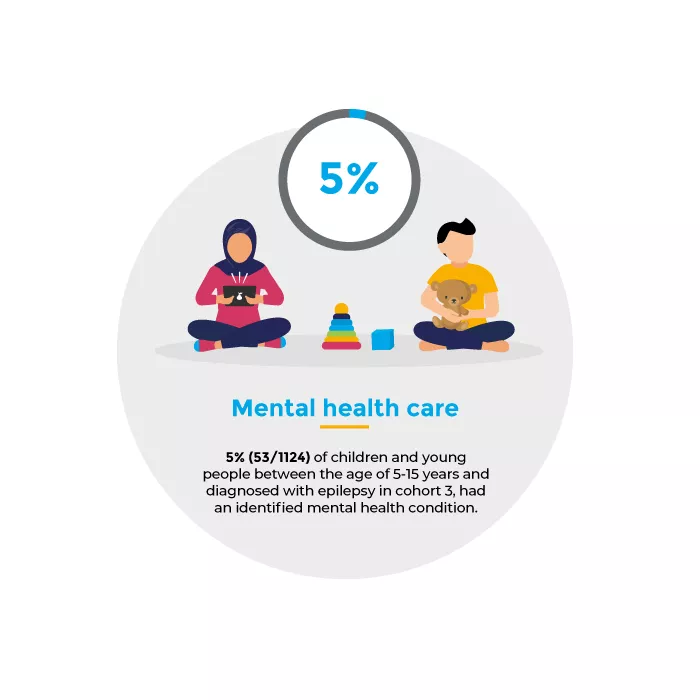
- EEG Waiting Times
-
Children and young people with epilepsy should have an Electroencephlogram (EEG), an important investigation to support the diagnosis and monitoring of epilepsy.The waiting times for EEGs were longer than recommended for some children and young people.
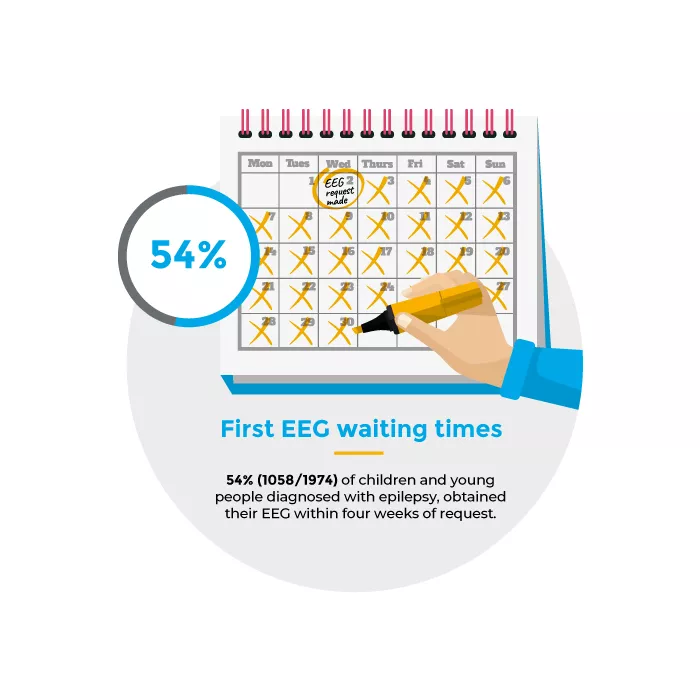
We want to thank the epilepsy services in England and Wales for participating in the audit and quality improvement activities, and recognise their continued dedication to children and young people with epilepsy.
You can find out more about our results by downloading our patient and parent guides or our most recent annual report from the downloads section of this page.
How Epilepsy12 uses patient data
In order to improve the standard of care for children and young people with epilepsies, the Epilepsy12 audit collects and processes patient data. This information is used to highlight the success of services and identify areas for improvement.
In England, the National Data Opt-Out (NDO) service allows patients aged 13 or over (or those with parental responsibility for patients under 13) to opt out of their information being used for purposes beyond their direct care. The Secretary of State for Health and Social Care, having considered the advice from the Health Research Authority Confidentiality Advisory Group, has decided that the National Data Opt-Out will not be applied to Epilepsy12.
This is because applying the NDO would introduce biases to the data and make it difficult to monitor care safety and quality at Trust level, risking quality of care and patient safety. You can still opt out of your personal information being used for this audit. Please let your paediatric epilepsy team know and they will remove you from the submission so that we don't receive the data. Alternatively, you can contact the Epilepsy12 team directly at epilepsy12@rcpch.ac.uk and we will ensure that your personal identifiers are removed from our database.
For more information, please see the privacy notices below or contact epilepsy12@rcpch.ac.uk.



